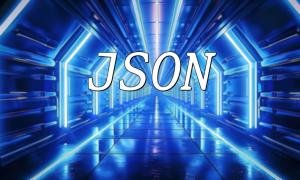In modern PHP applications, error handling is not just about keeping the program running smoothly, it also impacts user experience and system security. By implementing a solid error handling mechanism, developers can quickly pinpoint issues and ensure that the code is stable and reliable in various scenarios. This article explores how to enhance the robustness of code in PHP frameworks through a series of best practices.
Before handling errors, developers need to clearly understand the common types of errors in PHP so that they can implement targeted solutions:
Syntax errors occur when the code does not follow the correct syntax rules, and PHP detects these errors before execution. IDEs and code review tools can help developers quickly find and fix these errors.
Runtime errors occur during program execution, such as calling an undefined variable or function. These errors can lead to crashes, so they should be handled carefully to avoid system failures.
Logical errors occur when the program doesn't behave as expected, even though PHP does not report them. These errors are often difficult to detect and require detailed logs and comprehensive testing to identify and resolve.
PHP provides an exception handling mechanism that allows developers to use try-catch blocks to catch and handle exceptions. Using exceptions enhances code readability and ensures that the program continues running even after an error occurs.
Example code:
try {
// Code that might throw an exception
$result = someFunction();
} catch (Exception $e) {
// Handle exception
echo 'Caught exception: ', $e->getMessage(), "
";
}In the above code, if someFunction() throws an exception, it will be caught and handled, preventing the program from crashing and allowing the subsequent logic to continue.
For unforeseen errors, a global error handler can be set up to ensure the system remains stable. PHP provides the set_error_handler() and set_exception_handler() functions, which allow developers to define custom error and exception handling functions.
Example code:
function customError($errno, $errstr) {
echo "Error: [$errno] $errstr";
}
set_error_handler("customError");By setting a custom error handler, developers can log error messages or perform other actions without showing system errors to end users, enhancing the user experience.
Error logging is an important tool for ensuring the robustness of code. By recording error information, developers can quickly locate and fix issues in the system.
Example code:
function logError($message) {
error_log($message, 3, '/var/log/my-errors.log');
}
try {
// Code that might throw an exception
} catch (Exception $e) {
logError($e->getMessage());
}By logging error messages, developers can analyze issues and troubleshoot effectively in the future.
When displaying errors to users, user experience should be prioritized. In production environments, developers should avoid showing detailed error information that may expose sensitive system data.
Example code:
function handleError($error) {
echo "We encountered some issues. Please try again later.";
logError($error->getMessage());
}By displaying a simple and user-friendly error message, users won't be exposed to internal system details, which enhances both security and user trust in the application.
Error handling is a critical component in ensuring the robustness of code in PHP frameworks. By understanding error types, using exception handling, setting up global error handlers, logging errors, and providing user-friendly error messages, developers can significantly improve system stability and security. Going forward, developers should continue to refine and update their error handling practices to keep up with changing technologies and requirements.









